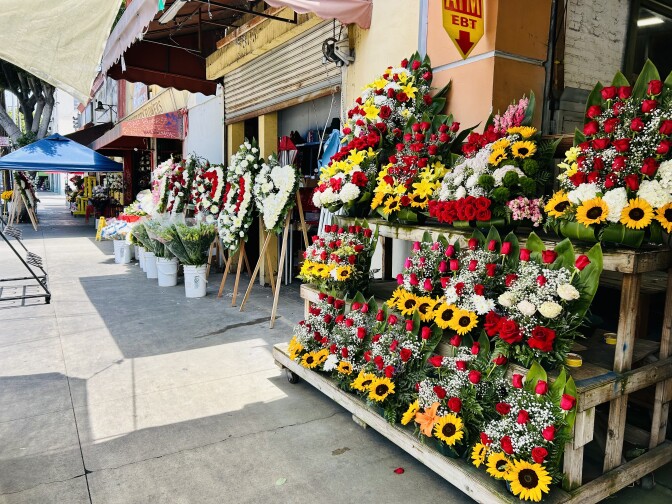Normally, L.A.’s flower market is bustling with people speeding down sidewalks and indoor aisles with armfuls of flowers. But on Monday, there was plenty of elbow room.
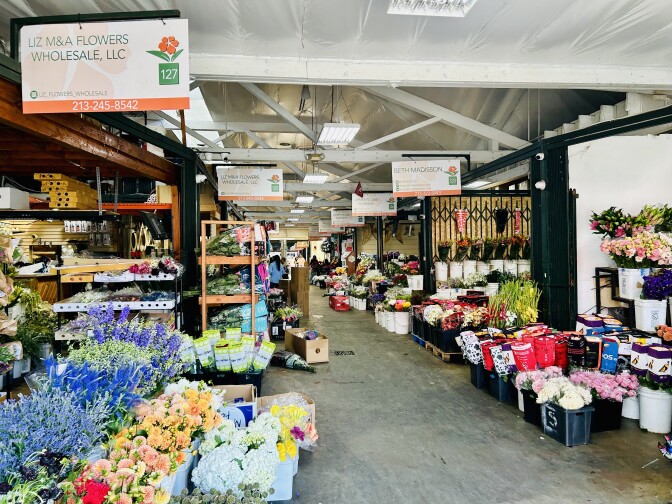
“It's Monday, today's the day where a lot of florists come to get their flowers and as you can tell, it's kind of dead,” said Evelin Esparza, standing in her shop on 8th and San Pedro streets, surrounded by sunflowers, pink roses and white gladioli.
She began running Armenta Bee Flowers with her husband three years ago.
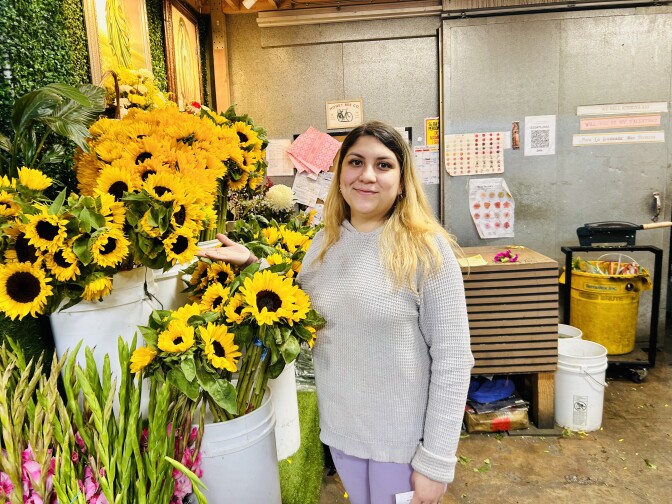
The wholesale flower district is a multi-block zone where storefronts large and small face the streets and even more businesses operate in stalls inside malls inside.
Many of them are owned and run by Spanish speaking immigrants and many of their employees are also Latin American immigrants, some without proper documentation to remain in the U.S.
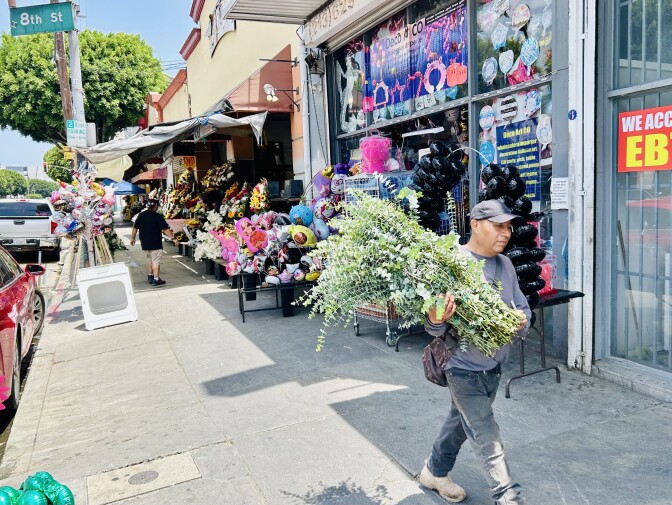
As soon as the first raid hit … I'm in charge of our social media, I had to tell my followers and my customers, that [immigration agents] were here and they were present.
Esparza said when immigration agents suddenly arrived in the area last week, it caused chaos. The owner of her mall closed the street-facing steel curtain to keep agents from coming in.
“As soon as the first [immigration] raid hit… I'm in charge of our social media and my parents are immigrants, I had to tell my followers and my people who are my customers, that [immigration agents] were here and they were present,” Esparza said.

For many store owners like Esparza, it had been a busy May, with graduations, Mother’s Day and other events.
But since the raids, business has dropped by 60%, she said. One big reason: street corner flower sellers, mostly immigrants, who sell roses and bouquets at traffic stops are staying away.
“They appear small, but those buyers are a big part of this business,” said Silvia Lozano, manager at My Floral Factory.
One client, Lozano said, would stop by each week to buy 1,000 bunches of 25 roses each. The client would then employ about a dozen people to distribute and sell those flowers, including family members.
Sometimes [customers] call and say, ‘Hey, how is it out there, is it still kind of rough up there?’ No, it's not [I say] but they’re scared.
Lozano said only about 20% of those people are still showing up to buy flowers. But the raids have also deterred her other customers, U.S. citizens who run small and large flower-related businesses.
Fear, founded and unfounded
So far, no other immigration agents have turned up at the market. But the fear of their presence is having a powerful effect. Robert Rojas, owner of The Vinny’s Company, said his regular customers have been checking in.
“Sometimes they call and say, ‘Hey, how is it out there, is it still kind of rough up there?’ No, it's not [I say], but they’re scared,” Rojas said.
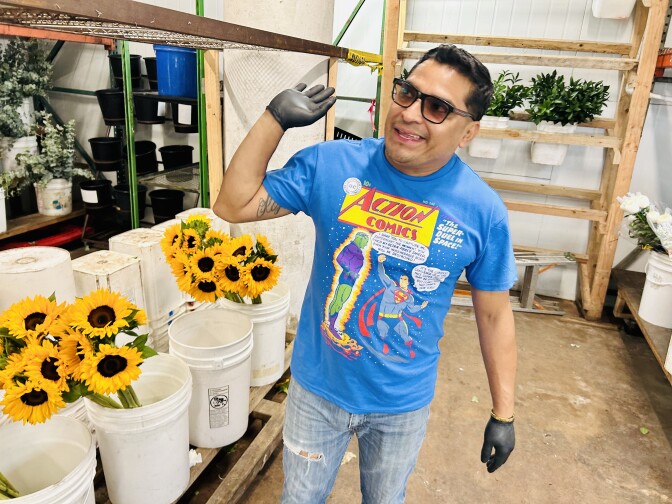
Some wonder if such pervasive fear is warranted.
“I think there's a lot of hype, so it's scaring people,” said Annette Yonemitsu, who was at the mall on Monday to buy flowers for her shop, Century City Flower Market.
She said amplification of the raids on social media is partly to blame for people staying away from the flower district.
“I was here when the helicopters were around — everybody's like, ‘They're coming in.’ Nobody came in,” she said.
How long can they hang on?
Vendors said they were already paying more for flowers after the Trump administration announced tariffs earlier this year. The vast majority of their flowers arrive by plane from Colombia and other South American countries a few days after being picked, and the announcement of tariffs had caused prices to rise.
The recent drop in business due to the raids is adding to that pain, with some wondering how long they can stay afloat.
One owner, who would not give his name, said his 10 foot by 30 foot stall costs $4,000 in monthly rent. He estimated that he can stay afloat for only two to three months at the current level of sales.
Others pay a lot more.
“ I can't wait. I got a lot of overhead. I gotta pay bills, rent,” Rojas said.
Rent for his shop and the adjacent store run by his brother is $14,000 a month, he said.
There’s also another aspect of the current atmosphere: people are having fewer get-togethers, which means lower demand for flowers for all occasions, from funerals wreaths to wedding arrangements.
“We are Latinos and we love to have parties, but people aren’t having as many parties as they used to,” Lozano said.




